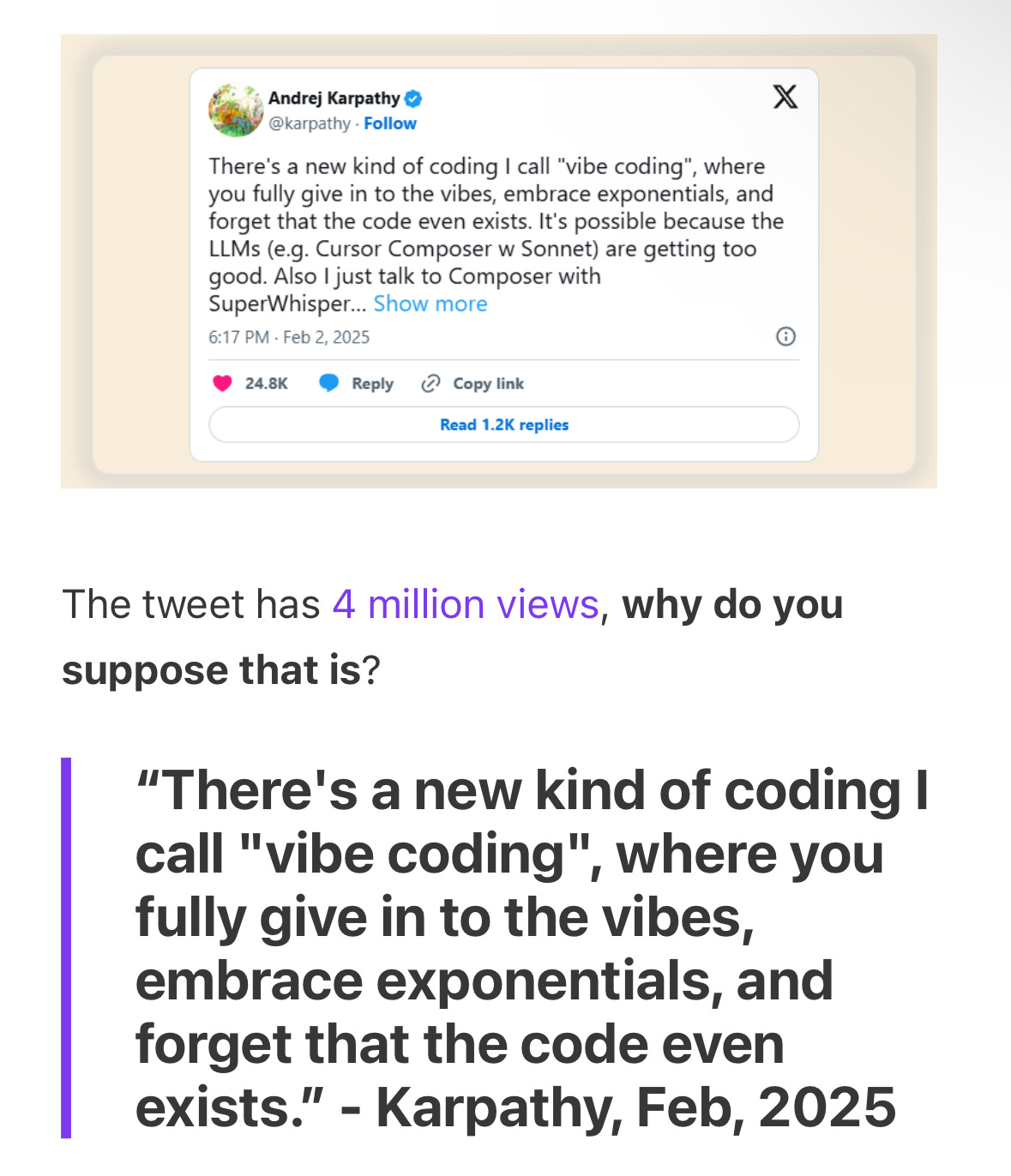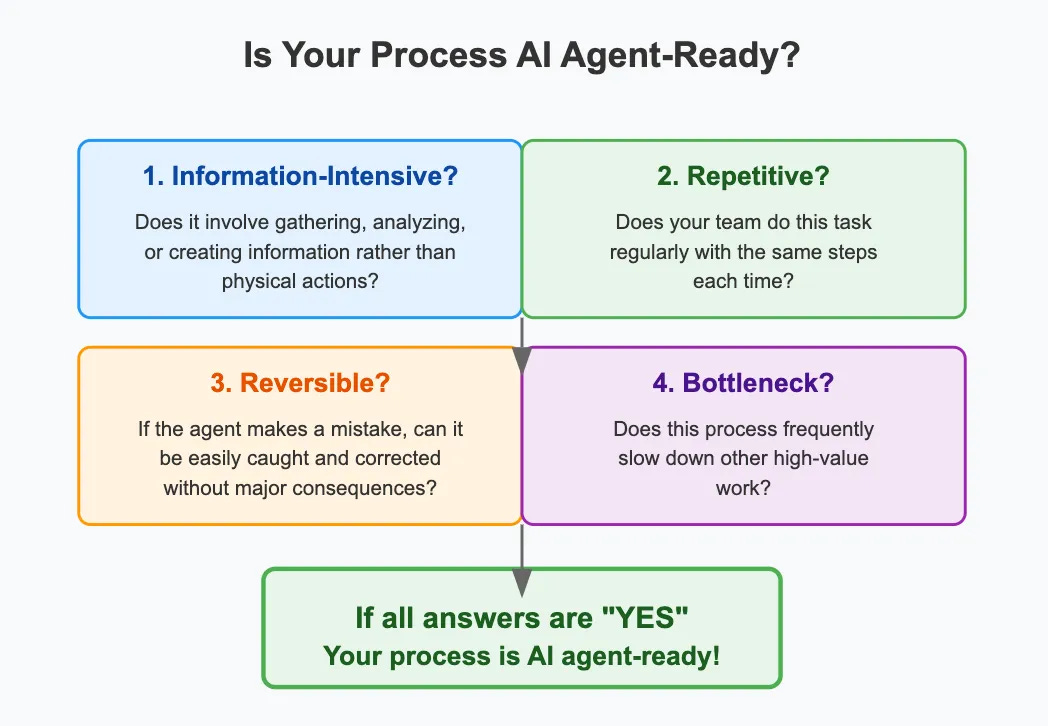In "The Great Rewiring" series, we explored how businesses can transform operations by rebuilding around AI agents. But what if you could create these agents yourself—without writing a single line of code?
That's exactly what's happening with 'vibe coding,' a breakthrough approach where you build software by having a conversation with AI instead of programming it manually. As Andrej Karpathy (founding member of OpenAI and Tesla's former AI director) put it, 'The hottest new programming language is English.'
This shift doesn't just change how we build software—it changes who gets to build it. And that might be the biggest business opportunity of all.
What Is Vibe Coding?
Vibe coding is creating software by talking to AI instead of writing traditional code:
Describe what you want in plain English
Review what the AI creates
Refine with conversational feedback
You focus on what you need, not how to build it.
Key Takeaway: Vibe coding democratizes software development by allowing those without coding expertise to turn their ideas into digital products.
Why This Changes Everything
Traditional software development involved complex handoffs between business experts and technical teams. Vibe coding flips this model completely:
Domain experts create solutions directly - No more waiting for developers
Prototype in days not weeks - See working prototypes immediately and refine in real-time
Focus on outcomes, not code - "What problem are we solving?" vs "How do we code this?"
You don't need coding expertise—just the ability to describe what you want, recognize when it works, and provide feedback.
Cautionary Note: While perfect for prototypes and internal tools, production apps still need professional developers for security and scale. Think of vibe coding as creating the blueprint that professionals can perfect.
Finding Your First Vibe Coding Project
To find your first vibe coding project, look for tasks in your daily life that are:
Information-intensive? Does the process involve gathering or analyzing information?
Repetitive? Do you perform this task regularly?
Reversible? Can mistakes be easily fixed without major consequences?
Bottleneck? Does this process slow down more valuable work?
See It In Action: My AI News Aggregator
My daily AI news research is a perfect candidate - it's information-intensive, repetitive, low-risk, and is one area where I spend a lot of time.
Here's the simple prompt I used to get started in Cursor:
Create an AI news aggregator that:
- Fetches recent AI-related articles from multiple sources
- Scores articles (0-100) based on keywords, company significance, tech relevance, credibility, and freshness
- Displays the top 10 highest-scoring articles with title, source, score, and description
- Updates in real-time when requested
- Filters for articles from the past 3 days onlyAfter about 2-3 hours of debugging and refinement, here's the working result:
From idea to working software in one afternoon. What would have traditionally required technical expertise, significant development time, and considerable resources now happens over a weekend for just a few dollars of compute cost.
Ready to try vibe coding?
Here are two tools that make it incredibly easy:
🛠️ Wispr Flow - Speak to your computer through this interface that connects directly with your applications
🛠️ Cursor - AI-powered code editor that turns conversation into working software
This weekend: Identify a repetitive information task that consumes your time. Use Cursor to describe an agent that automates this process. You might be surprised how quickly you can turn a daily bottleneck into an automated workflow.
I'd love to hear about your experiences - share them in the comments or send me a DM!
Key Takeaway: The real power of vibe coding isn't just faster software development—it's democratizing who gets to create. By removing coding as a barrier, domain experts can now build their own solutions.







Proud vibe-coder here! It's how I manage being a solo game dev. I had no idea there was a term for this. 😄
Who is doing application security on the resulting code to verify vulnerabilities have not been introduced?
I wonder how many vibe-coders will be sued when there applications disclose their users private information?
Can you imagine the hackers salivating in the wings ready to take advantage of the Swiss Cheese holes in these apps?
I might need more popcorn 🍿 when the fur starts flying 😂